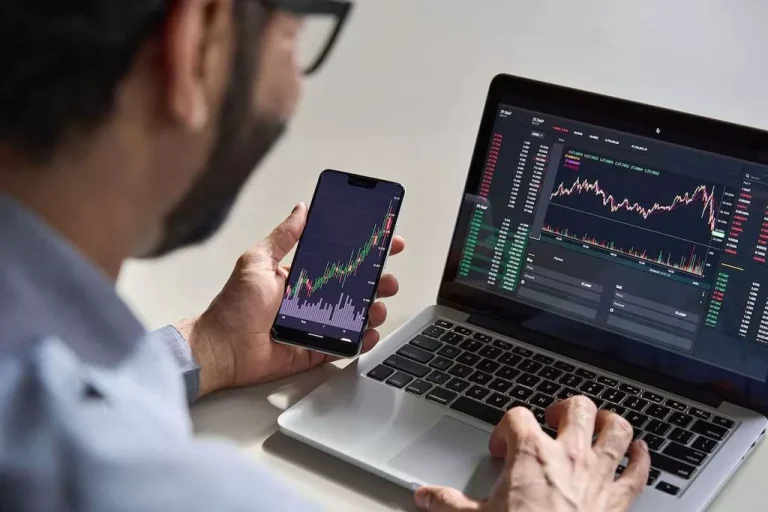Content
Institutions that manage large amounts of money such as hedge funds, pension funds, investment banks and family offices, are required by regulation to have a custody Initial exchange offering partner to keep their clients’ money safe. Digital asset custodians do not technically store any of the assets because all data and transactions exist on a public ledger called the blockchain. Instead, what they guard are users’ private keys – the important part of a crypto wallet that grants access to the funds held in it.
Your Keys, Your Coins: The Power of Crypto Self-Custody
- They’re generally the more user-friendly of the two types, designed to make your crypto experience as smooth as possible.
- Others may require a minimum balance so high that it excludes most everyday holders from accessing their services.
- The company offers superior-quality hardware wallets to securely store its clients’ cryptocurrency assets.
- Thus, remember, a private key is like a secret code that’s just for you, and you should guard it like you would your most precious belongings.
- Unlike traditional providers, digital asset custodians don’t technically store the assets themselves.
- On the other hand, a 2-3 multi-signature wallet will require two signatures out of three to authenticate a transaction.
You can send or receive Bitcoin any time you wish without needing the nod from some third party. With all the troubles that we have already had throughout the year, it is important to highlight that the recent problems around FTX are based on fundamental malpractice outside of any blockchain technology. Incidents like Terra/Luna earlier this year, on the other hand, were triggered by flaws in the protocol, which in turn was created and operated by centralized institutions. Public networks are more susceptible to man-in-the-middle attacks, so stick to secure, private networks for all things crypto. Exchanges usually have a review process, so it might take a moment for the transaction to be confirmed. However, once it’s done, the Bitcoin will be moved from the https://www.xcritical.com/ exchange to your Ledger Nano X.

Why Does Crypto Need Custody Solutions?
These may include (but are not limited to) the sweeping of assets into a centralized omnibus wallet and the shifting of assets into cold storage. New digital asset custody solutions are available every day, making it easier and safer to invest in crypto. Cold storage is widely considered to be more secure than hot storage because this option doesn’t involve an internet connection. Cold storage is often preferred by those who want to hold large quantities of assets over the long-term, as assets What Is a Crypto Custody can sit dormant safely away from cyber attacks. Self-custody is one of three types of crypto custody, and it’s the option that gives you most control of your assets. With self-custody — also known as “non-custodial” — you take sole responsibility for managing your private keys.
What is cryptocurrency custody: choosing the right crypto storage option
In recent years, the growing number of crypto users has led to the emergence of numerous crypto custody solutions. Today, various service providers offer crypto asset custody, allowing you to store your private keys safely. With these solutions, you can be assured that you won’t lose your private keys, and your digital assets will be protected from criminals. The mass adoption of crypto assets and rapid industry growth created the need for efficient ways to store cryptocurrency securely. Digital currency is usually stored in digital wallets that are accessed via private keys.
If you choose to go with self-custody, you save on the custody, setup and withdrawal fees, but do not expect it to be free. The user has to take care of the wallet and buy a storage product to keep the private key safe. As with any type of service, providers typically charge a number of fees for safekeeping your money, just as regular banks do when you have a checking or savings account. Crypto custody is a term used to describe the process of securing assets from theft. Custodians – third parties that can be hired to look after your crypto for you – act as safeguards of your money, be it cash, securities, gold bars or virtual assets. Custodians have been around since the 1960s and are one of the pillars of the traditional banking system.
With features like cross-chain swaps and staking, SafePal is not just a wallet, but a complete asset management suite. Price-wise, the software version is free, while the SafePal S1 hardware wallet costs $49.99 (a pretty decent price in the hardware wallet industry). It’s user-friendly and eliminates the vulnerabilities that come with seed phrases.
Following password best practices can help reduce your crypto accounts’ exposure to hacks, thefts, and other malicious activity. When it comes to Chrome VPNs, these are the best options to protect your privacy. Comparing the fees of third-party custody and self-custody, you may find the latter a more cost-effective option.
A retail investor, for example, might want a simple, relatively hands-off option, whereas an institutional investor could require more customization. Fortunately, there are a variety of options available, from self-custody options like a hardware or software wallet to third-party offline storage in a cold wallet. However, service providers are not the only way to maintain crypto custody. For example, you can use self-custody wallets to keep the private keys to yourself. Institutional clients are constantly navigating changing frameworks across jurisdictions as countries seek to provide regulatory clarity on digital assets and blockchain.
In other words, crypto self-custody is essentially the digital version of holding cash or precious metals in a personal safe. If you’re holding your crypto on established exchanges like Bybit and Kraken, you’re in relatively safe hands because they offer robust security measures. In the Web 2.0 financial system, we trust centralized entities like banks and governments with our assets. When you deposit money in a bank, you give a third party control (or custody) over your assets, trusting that the bank will have that money ready for you to withdraw later. If for some reason the bank doesn’t, you trust that it’s insured and that your government will reimburse your losses. On the pro side, holding custody of coins yourself in your own wallet means that only you can access those funds.
In traditional banking, all custodians are financial institutions, as required by law. With crypto, however, holders have the opportunity to become their own custodians. Using gold bars as an analogy, you can either store them under your bed to keep them safe yourself or pay a third-party custodian to lock them in a vault protected by security guards. Ripple Custody allows exchanges to confidently grow their volumes and profit margins without compromising security, compliance or operational efficiency. One other benefit of self custody is that you can also use a “cold wallet,” which is a physical device (similar to a USB drive) that enables you to securely store your private keys offline. People often treat hot wallets like keeping some cash in their pocket, and cold wallets like a home safe for more funds.

There are two main categories when securing private keys — hot and cold storage. The crypto custody solution industry has become popular as the crypto industry expands, and it is likely to continue growing as more institutions become involved in the crypto space. However, it’s essential to take note of the risks involved in self-custody. For example, if you lose or forget your private key, there is no backup, and you cannot approach a third party to provide you access to your funds.
A qualified custodian, in this case, would most likely be a financial institution or a trust. There is a lack of regulated, insured custodians for cryptocurrencies, as traditional banks and financial institutions are understandably reluctant to hold these assets. Until more regulated custodians enter this new market, we can expect that investment funds will remain quite rare.
Non-custodial wallets give individuals full access to their tokens — holding the seed phrase, public and private keys — misplacing these would result in losing the assets. The features of self-custody wallets can vary, some provide browser-like features, allowing the wallet to connect directly to DApps, others supporting non-fungible tokens (NFTs), etc. To add on, we cover the different types of wallets commonly used by crypto-natives and the common features amongst them. To keep control of your digital assets, you need to use a hot or cold crypto wallet. This may include self-custody wallets like a mobile, desktop, hardware, or paper wallet. Using these options lets you gain complete control of your crypto funds, and no third party is involved.

